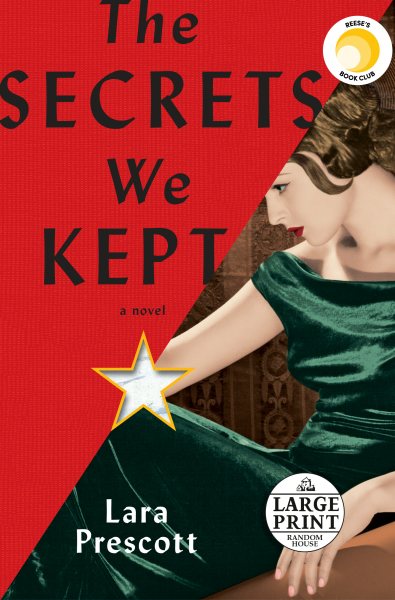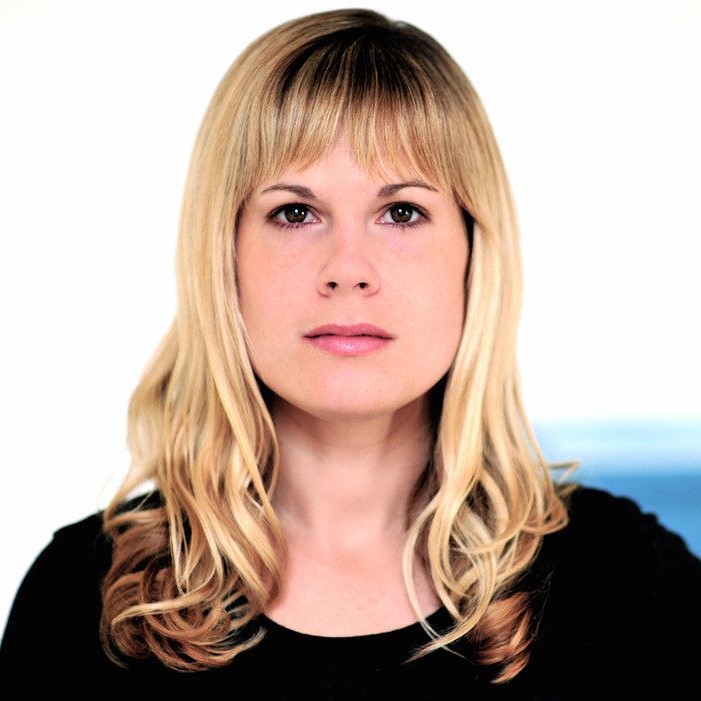Interview by Jana Hoops. Special to the Clarion-Ledger Sunday print edition (November 17)
 Lara Prescott’s fictional account of three young women employed in the CIA’s typing pool who rise to the upper echelons of espionage during the 1950s Cold War is based on the true story of the agency’s undercover plan to smuggle copies of Boris Pasternak’s Dr. Zhivago into the USSR.
Lara Prescott’s fictional account of three young women employed in the CIA’s typing pool who rise to the upper echelons of espionage during the 1950s Cold War is based on the true story of the agency’s undercover plan to smuggle copies of Boris Pasternak’s Dr. Zhivago into the USSR.
The Secrets We Kept, Prescott’s debut, has been released to much acclaim that included the possibility of movie rights.
The winner of the 2016 Crazyhorse Fiction Prize for the first chapter of The Secrets We Kept, Prescott’s stories have been published in the Southern Review, The Hudson Review, Crazyhorse, Day One, and Tin House Flash Fridays.
Prescott received her MFA from the Michener Center for Writers at the University of Texas, Austin, and today she resides in Austin.
The Secrets We Kept is based on a true but probably little-known slice of Cold War history during the 1950s that saw the American CIA make a strategic push to have Russian author Boris Pasternak’s epic novel Doctor Zhivago published and made available to Soviet readers. The ploy not only resulted in the book’s publication in 1957, but to top it off, it was (much to the embarrassment of Russia’s Communist officials) granted the Nobel Prize for literature the following year. How did this event come to your attention, and what inspired you to base your debut novel on this feat?

Lara Prescott
I first learned about the Doctor Zhivago mission in 2014, after my father sent me a Washington Post article about newly declassified documents that shed light on the CIA’s Cold War-era “Books Program.” With my interest piqued, I devoured the incredible true story behind the publication of Doctor Zhivago. What I discovered was that the CIA had obtained the banned manuscript, covertly printed it, and smuggled it back into the USSR.
The first CIA memos on Doctor Zhivago described the book as “the most heretical literary work by a Soviet author since Stalin’s death,” saying it had “great propaganda value” for its “passive but piercing exposition of the effect of the Soviet system on the life of a sensitive, intelligent citizen.”
And it was seeing the actual memos and so many other declassified documents like them–with all their blacked-out and redacted names and details–that first inspired me to fill in the blanks with fiction.
Explain how art, music, and literature were considered so important to Soviet culture that they could be used to spread the idea of freedom among its citizens during this time.
During the Cold War, both the Soviets and Americans believed in the unmatched power of books. Joseph Stalin once described writers as, “the engineers of the human soul.” And in a 1961 secret report to the U.S. Senate, the CIA’s former chief of covert action described books as, “the most important weapon of strategic propaganda.”
Each side believed the longtail of cultural influence–how people could read a book, view a work of art, or listen to a piece of music and come away from the experience a changed person. In the case of Doctor Zhivago, the CIA wanted Soviet citizens to question why a masterpiece by one of their most famous living writers was kept from them.
Tell me about the main female characters and why they were so well suited for their roles as spies.
The characters of Sally and Irina are very much inspired by early female spies. Elizabeth “Betty” Peet McIntosh’s book Sisterhood of Spies first exposed me to a world of real-life heroines, including Virginia Hall, Julia Child–yes, that Julia Child–and Betty herself. These women got their start in the OSS, which was the precursor to the CIA, during World War II, and, after the war, some transitioned to the CIA, just as Sally does in the novel.
Today, we may have a woman as the head of the CIA, but, back then, most women–even those who had served their country so courageously–were relegated to secretary or clerk positions. The character of Irina is first hired for such a position, but quickly is utilized in the Agency as someone who picks up and delivers classified documents. These were jobs women were suited for, as they’d often go undetected as someone who could possibly be handling secret information.
Considering the different cultural and economic roles of women at the time of the book’s setting–when they were often held back from career success–you portray intelligent, hardworking women who genuinely enjoy their work and are good at it. At what stage was what we now call “feminism” in those days?
I believe the experiences of these hardworking and highly qualified women being held back from advancing in their careers were the seeds of modern-day feminism. During this time period, women were already beginning to question why they were being paid less money than their male counterpoints and why they were not given promotions. This sense of workplace inequality gradually developed into second-wave feminism in the 1960s.
Have you been surprised by the book’s acclaim to this point, beginning even before its publication, and with movie rights already in the works?
Absolutely! It has been an almost surreal experience. I feel so very grateful to have had the opportunity of such a large platform for people to discover and read my debut novel. The greatest joy comes from meeting readers who have been touched by the book in some way.
Lara Prescott will be at Lemuria on Thursday, November 21, at 5:00 p.m. to sign and discuss The Secrets We Kept. Lemuria has chosen The Secrets We Kept as its December 2019 selection for its First Editions Club for Fiction.


Comments are closed.